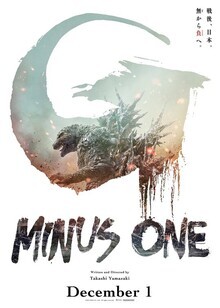
Godzilla Minus One
Godzilla Minus One
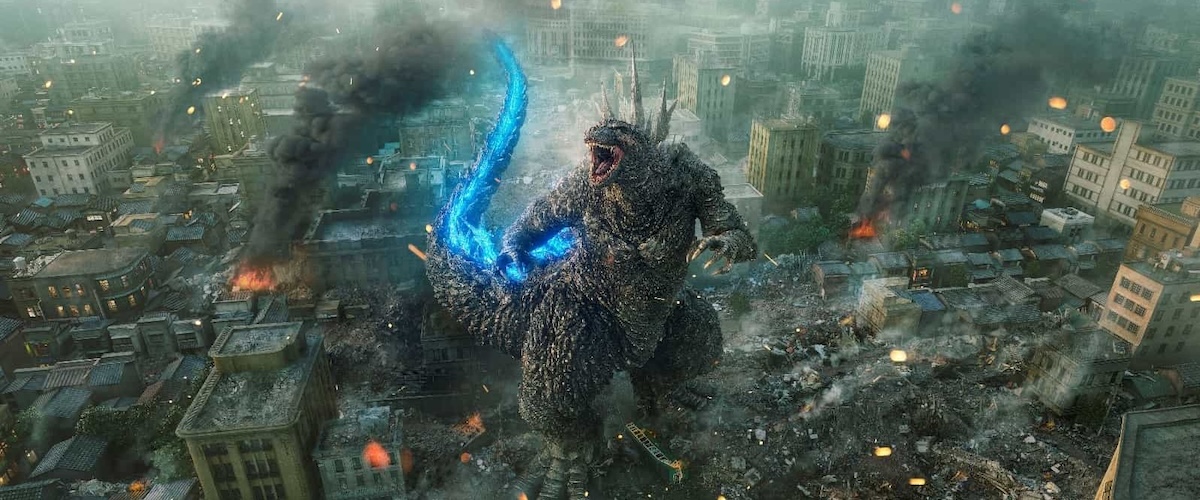
Now streaming on:
JustWatch
Godzilla turns 70 next year, and to celebrate, his parent company Toho Studios waited until the end of this year to release the most conventional Godzilla movie in recent memory. “Godzilla Minus One” may also be the most sobering and least flamboyant Japanese-produced Godzilla movie since the original 1954 nuclear lizard disaster pic (though “Godzilla 1985” fans might disagree). Some reviews of “Godzilla Minus One” have already praised the movie as an escapist crowd-pleaser. It’s easy to see why, given the bleak but well-calibrated tone of its human-centric scenes.
Set in 1946, “Godzilla Minus One” follows a spiritually depleted group of ex-military men as they rally to vanquish everyone’s favorite kaiju antihero. Here, Godzilla’s presence is a given, as it probably should be after dozens of movies and spinoff projects. If traumatized survivors like disgraced kamikaze pilot Koichi Shikishima (Ryunosuke Kamiki) can’t stop Godzilla, he will destroy Ginza and then stomp all over Tokyo.
Koichi is motivated by survivor’s guilt. In an establishing scene on Odo Island, Koichi takes aim at Godzilla but can’t bring himself to shoot. As a result, several fellow army men die, leaving Koichi to bury their bodies. Reviving Koichi’s ultimately patriotic mojo takes priority since that sort of nationalistic passion is apparently essential to fighting Godzilla. At the same time, Koichi’s loved ones are still very dead, so now he has to take care of other survivors, most of whom have also lost their loved ones, their homes, and their will to fight. That last part is crucial, but overcoming spiritual decline is also a big part of Koichi and therefore, Big G’s story in “Godzilla Minus One.”
“I would like to try to live again,” Koichi says with square-jawed sincerity. His intense need to prove himself is paralleled but never matched by fellow cast-offs like Kenji Noda (Hidetaka Yoshioka), a bookish ex-weapons engineer, and Sosaku Tachibana (Munetaka Aoki), an ex-Navy mechanic. These guys only hint at their inner demons; they often literally wear their trauma on their sleeves since the ash and grime of post-war recovery have already overtaken them. Some female protagonists, like Koichi’s selfless sweetie Noriko Oishi (Minami Hamabe) and his newly-orphaned adopted daughter Akiko (Sae Nagatani), also give him more reasons to fight, though their agency and personalities are even more limited than Koichi’s male co-stars.
Godzilla’s also in “Godzilla Minus One,” by the way, and he’s treated with apparent reverence. “Godzilla Minus One” is a well-calibrated popcorn movie, and you can hear it in the way that its creators play up fan favorite devices and associations. It’s an event when he roars or deploys his fire breath for the first time in this movie. Godzilla fans will probably also feel appropriately flattered by the strategic use of a few song cues from Akira Ifukube’s now iconic “Gojira” score.
Ifukube’s music is worked in seamlessly without sounding much like new music by “Godzilla Minus One” composer Naoki Sato, who lays down a droning orchestral wall of sound that his string section flits across like a surfer riding a towering and perpetually cresting wave. It’s one of the most rousing and nerve-wracking original scores in a recent Godzilla movie. Tactically deployed silences and mood-setting background noises also punctuate and goose the already overwhelming on-screen action.
The timing of “Godzilla Minus One”’s release might also make it harder to love. This is the first Japanese-produced live-action Godzilla movie since “Shin Godzilla,” a stylistically adventurous disaster movie and political farce, as well as a modern take on a beloved character. Toho’s not been idle in the last six years, though you might think so given the relative prominence of the Warner Bros.-produced American “MonsterVerse” franchise. (if you’re curious, Toho’s trilogy of animated Godzilla features is also worth a look) Neither has the “Shin Godzilla” co-director/writer team of Hideaki Anno and Shinji Higuchi, whose faithful and imaginative spins on tokusatsu heroes Kamen Rider and Ultraman were also released this year in America. Those two movies, “Shin Ultraman” and “Shin Kamen Rider,” had limited theatrical releases here in America. By contrast, “Godzilla Minus One” opened mid-week across the country, sometimes playing in the same “large format” auditoriums as “Renaissance,” Beyonce’s three-hour concert doc extravaganza.
“Godzilla Minus One” is obviously Toho’s attempt at foregrounding their scaly star’s character as a spectacular and traditional crowd-pleaser. They found the right man for the job in director Takashi Yamazaki, who established his populist bonafides with his sappy but irresistible 2005 period family tearjerker “Always: Sunset on Third Street” and its two sequels.
Yamazaki gives G-fans plenty of reasons to see “Godzilla Minus One” in theaters. He’s got a clear eye for action and a firm grasp on feel-good, saber-rattling melodrama. Yamazaki’s style, like his movie’s politics, only looks conservative compared to his predecessors. He made a good Godzilla movie, if not a great one.
In theaters now.

Simon Abrams
Simon Abrams is a native New Yorker and freelance film critic whose work has been featured in The New York Times, Vanity Fair, The Village Voice, and elsewhere.
Now playing

Ren Faire
Brian Tallerico
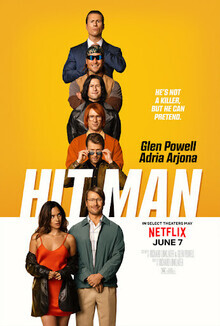
Hit Man
Brian Tallerico

Sight
Monica Castillo

Force of Nature: The Dry 2
Sheila O’Malley
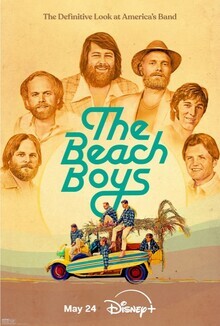
The Beach Boys
Brian Tallerico

Mother of the Bride
Marya E. Gates
Film Credits
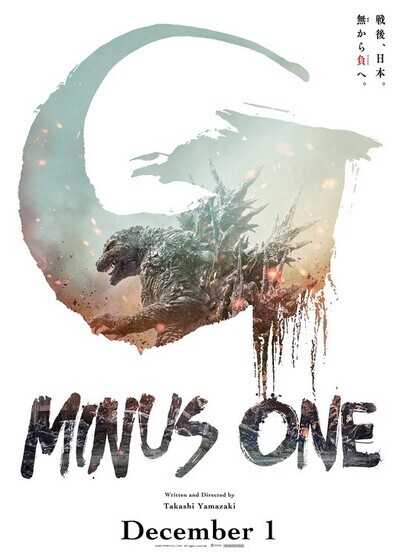
Godzilla Minus One (2023)
125 minutes
Cast
Ryunosuke Kamikias Koichi Shikishima
Minami Hamabeas Noriko Oishi
Yuki Yamadaas Shiro Mizushima
Munetaka Aokias Sosaku Tachibana
Hidetaka Yoshiokaas Kenji Noda
Sakura Andoas Sumiko Ota
Kuranosuke Sasakias Yoji Akitsu
Mio Tanakaas Captain Tatsuo Hotta
Yuya Endoas Tadayuki Saito
Kisuke Iidaas Akio Itagaki
Saki Nagatanias Akiko
Director
- Takashi Yamazaki
Writer
- Takashi Yamazaki
Cinematographer
- Kôzô Shibasaki
Editor
- Ryuji Miyajima
Composer
- Naoki Satô
Latest blog posts

The 2024 American Black Film Festival Announces Retrospective: Celebrating The Legacy Of Denzel Washington: Moderated by Chaz Ebert

Tribeca Film Festival 2024: 8 Highlights from This Year’s Event
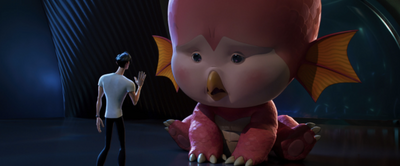
It’s Too Bad That Audience Pictures Like Ultraman: Rising Will Barely Be Seen in Theaters
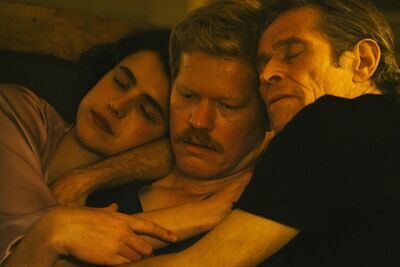
Jesse Plemons on Being Funny, Stepping Off the Ledge and Making ‘Kinds of Kindness’
Comments
comments powered by Disqus



